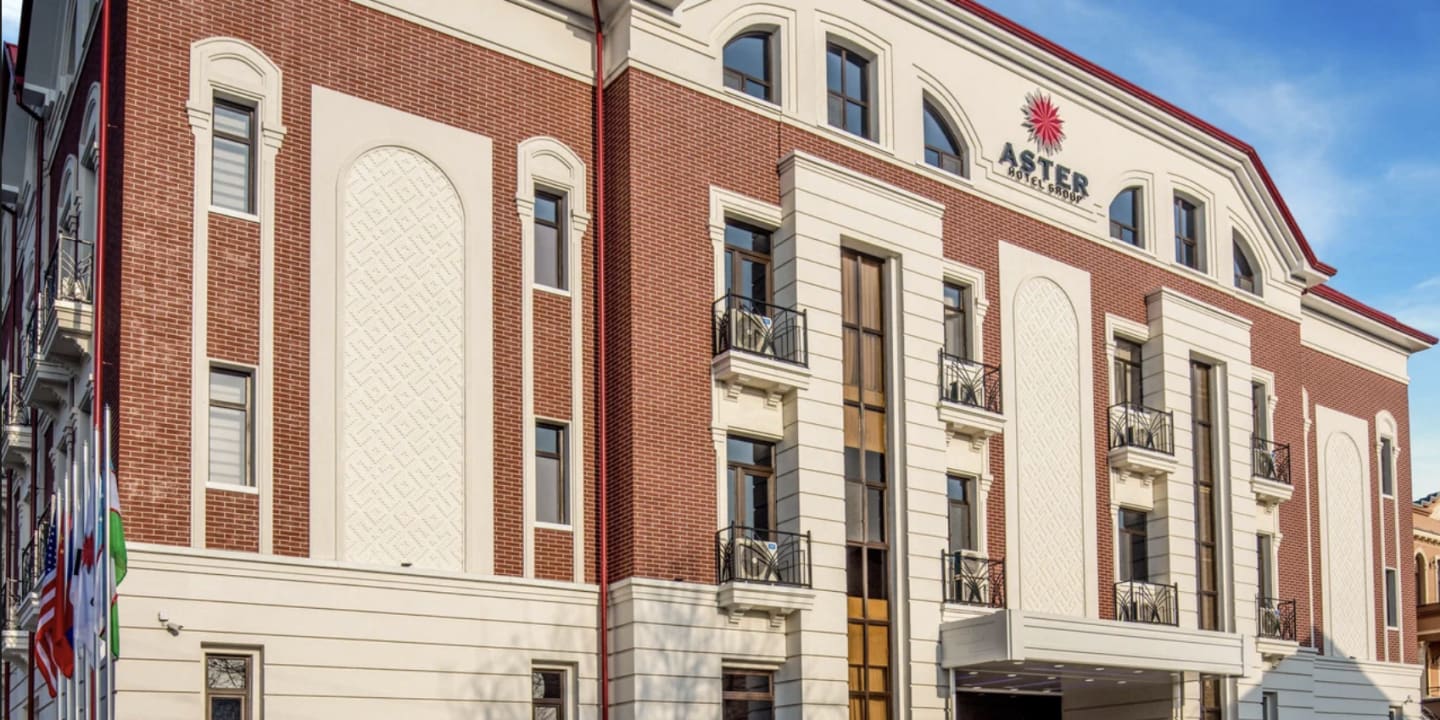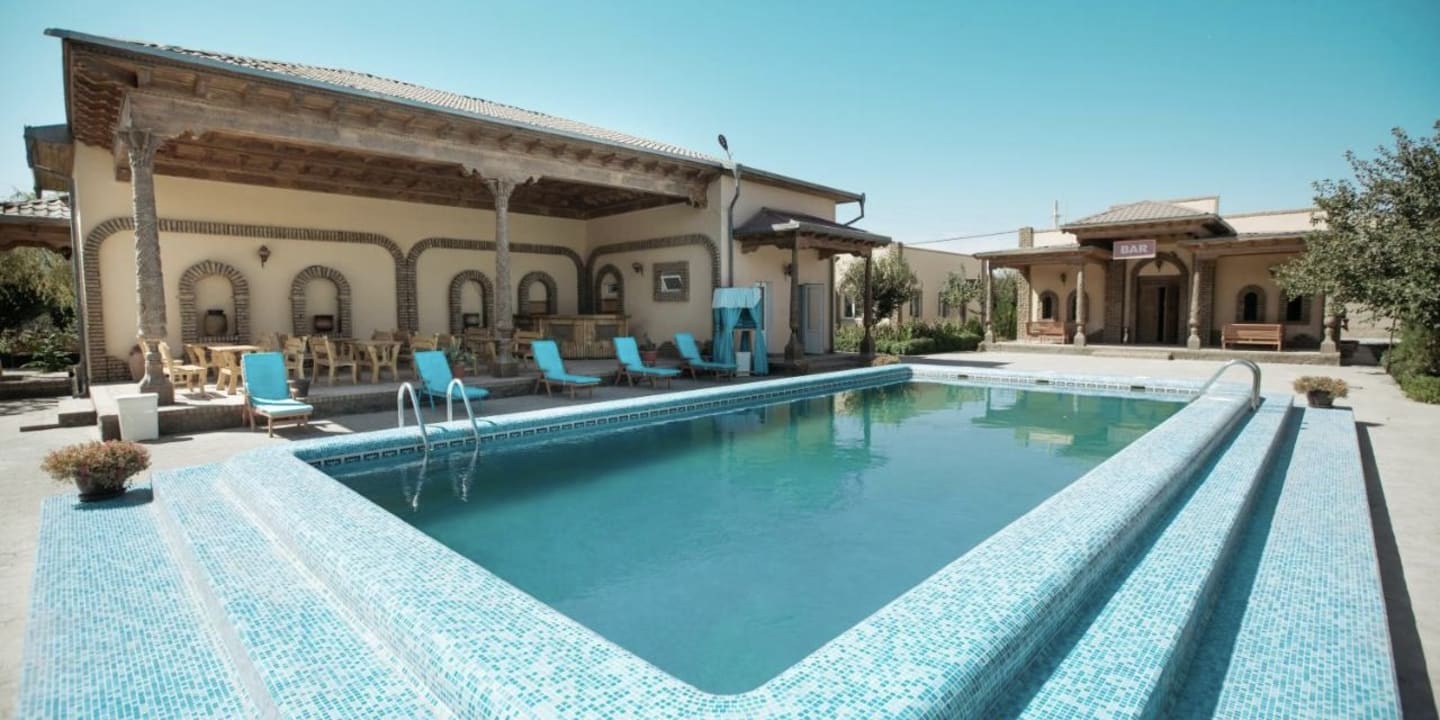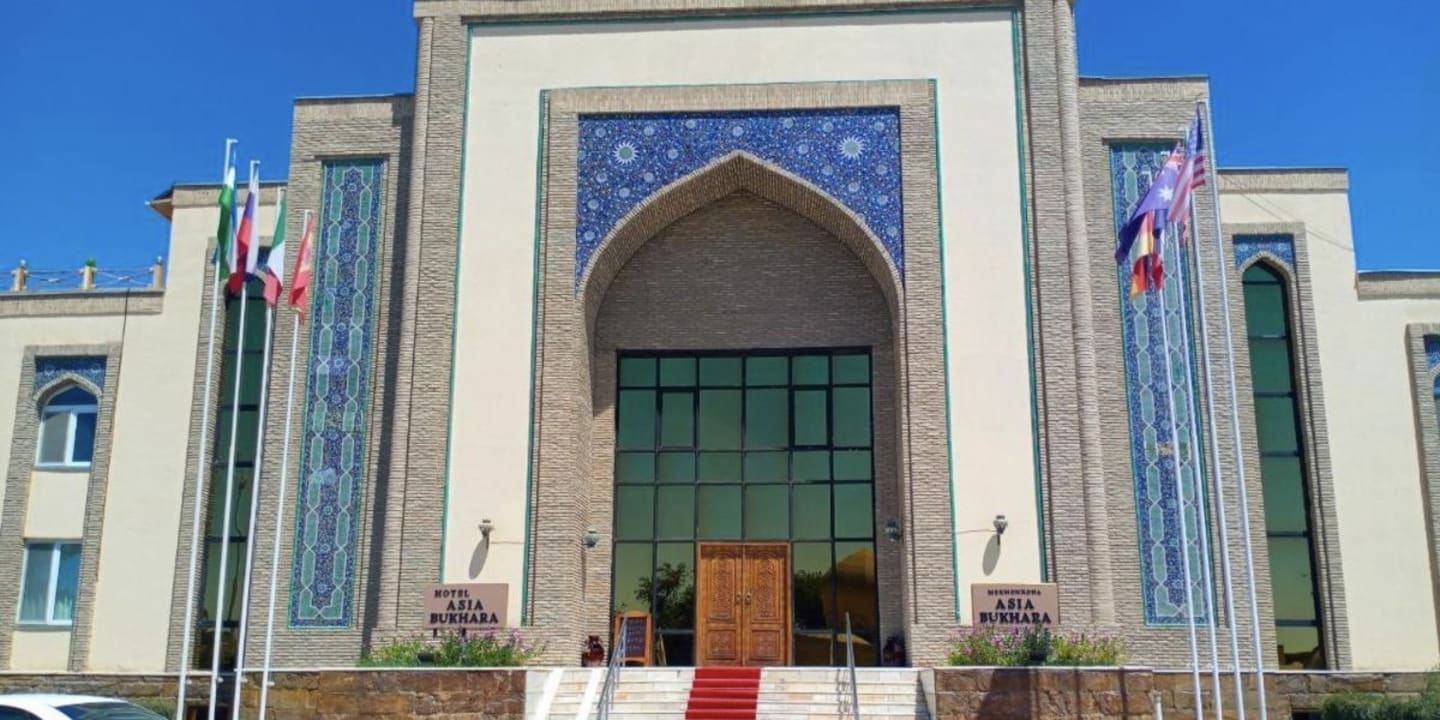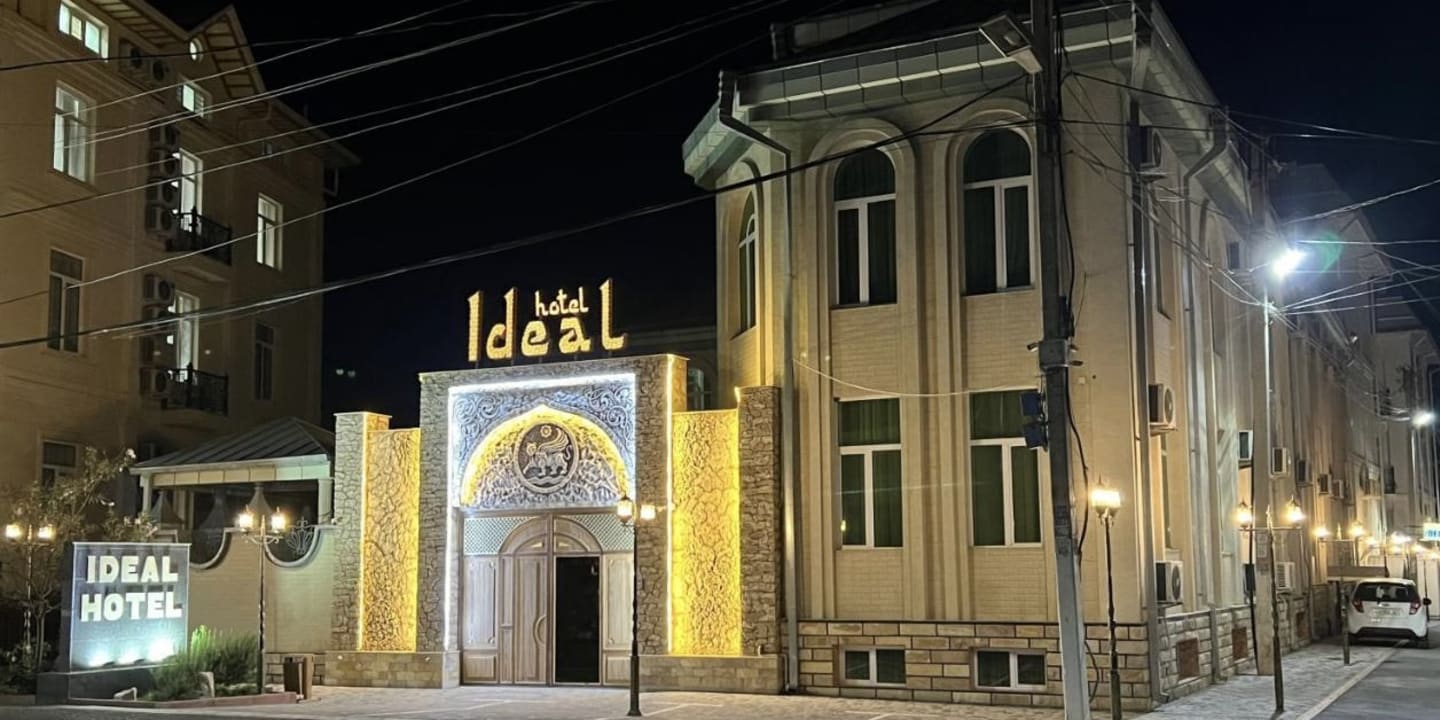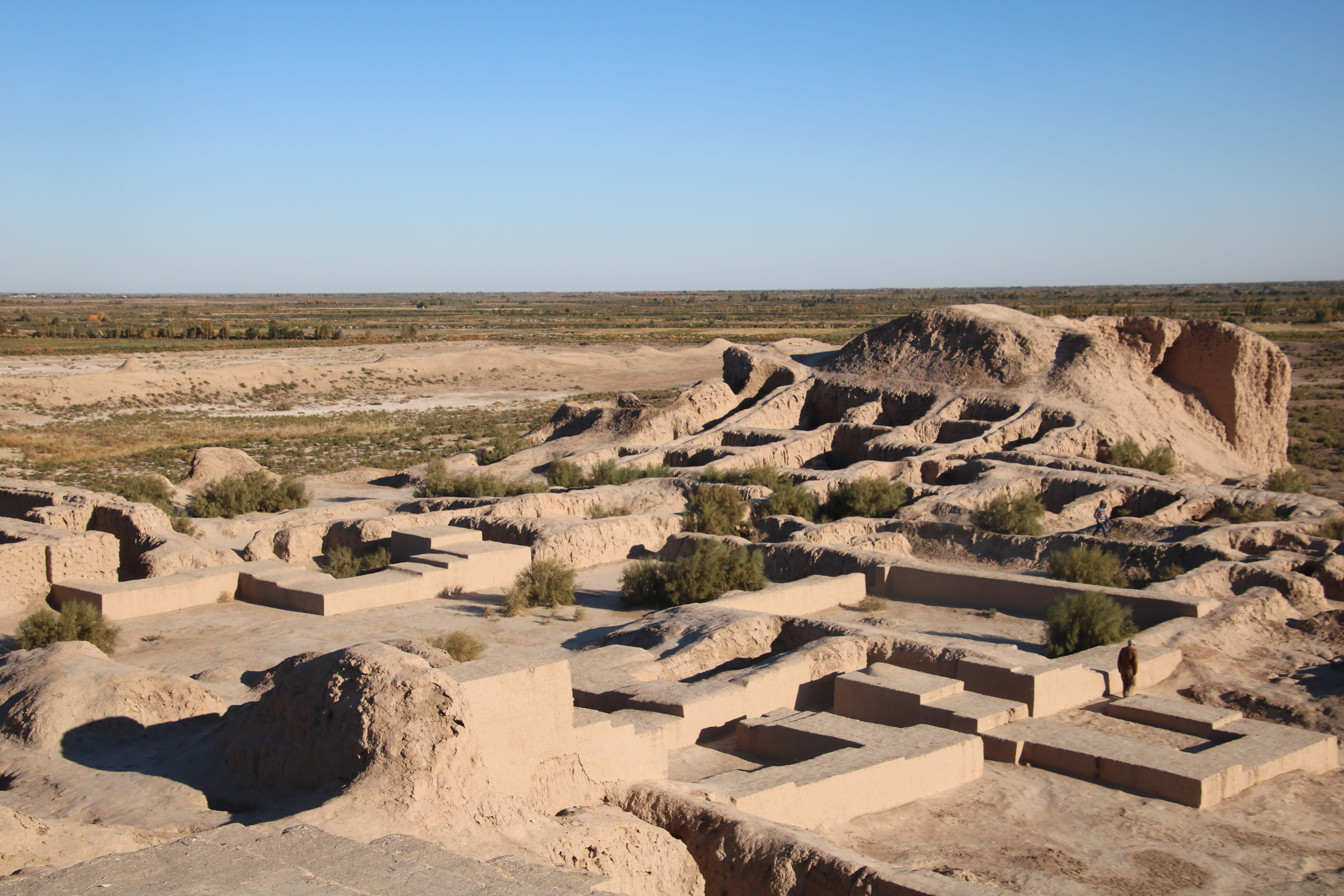
Uzbekistan History and Culture in-depth
Uzbekistan: Tashkent, Samarkand, Bukhara, Khiva, Nukus
Tour Highlights
- Explore Uzbekistan’s cosmopolitan capital Tashkent
- Visit to the Magnificent Registan square
- Enjoy a cookery class with a local family in Samarkand
- Discover Bukhara, Central Asia’s holiest city
- Visit the colossal Kalta Minor Minaret
- DelightinaKhoresmianFolkshowwithdinner
- Follow an ancient trading route across the Kyzyl Kum desert
- Nukus-SavitskiyArtmuseum
Price includes: Stan Roads agency service, local tour leader, arrival transfer, all local transportation, domestic flight, 12 nights accomodation and meals as indicated. Not Included: Visa fees, travel insurance (compulsory), international flights, additional meals, drinks, departure transfer, optional tours, spending of a personal nature, laundry and tips.
Itinerary
Tashkent aaa
Upon arrival, you will be met at the airport by a STAN ROADS representative and transferred 15-20 minutes by van to your hotel, located in the center of historic Tashkent. You will check in and receive your room assignments. Depending on where we stay, our centrally-located hotel may feature an elegant restaurant, bar and lounge, and gym. Your rooms will likely include a courtyard or any other pleasant view, a double bed, and a private bathroom. Breakfast is served buffet-style at the hotel beginning at 7 am. The morning is yours to rest from your day of travel before exploring Tashkent this afternoon. You’ll meet your small group around 12:00pm for a Briefing held at the hotel. Lunch is around 1 pm at a local restaurant in Tashkent, with traditional Uzbek dishes that often include rice, vegetables, meats, and are made with fresh, local ingredients. Afternoon, around 2:30 pm, we’ll enjoy a walk to Independence Square, which represents a symbol of freedom for the Uzbek people that was declared in 1991. We’ll also visit the Crying Mother Monument, constructed in 1999 to honor almost half a million Uzbek soldiers who died in World War II. Then we proceed to the Shahidlar Xotirasi Memorial Complex, a blue domed rotunda and fountain that pays tribute to the innocent shahid (martyrs) who were killed during Stalin’s purges. After return to the theater square to admire grand Alisher Navoi opera and ballet Theatre, we’ll head back to our hotel around 4:30pm for free time on our own before dinner. We will depart the hotel at around 6:30pm to enjoy a Welcome Dinner of regional specialties at a local restaurant. After dinner we drive back to the hotel at around 8:30pm, or you can choose to make more discoveries on your own.
Explore life in Tashkent
Breakfast is served buffet-style at the hotel beginning at 7am. At 9:00 am we’ll drive about 15 minutes to Tashkent’s Old Town, where we’ll explore Barak Khan Madrassah, a historical monument that has become a center for local artists and craftsmen. We’ll also get to see most valuable manuscript, one of the world’s oldest Korans, and visit Chorsu Bazaar, Tashkent’s famous green-domed market featuring acres of spices, produce, and traditional crafts. We’ll head back to the hotel at around 12:30pm. You’re free to enjoy lunch on your own. Your experienced Tour Leader can recommend local restaurants to try. Oras an option you can visit to the famed Central Asian Plov Centre, which specializes in plov, the famous Uzbek dish made of rice, meat, and spices. At 2:00 pm continue Tashkent city tour visiting finly oganized Uzbek applied art, take a metro ride famous Uzbekistan hotel which is a good example of Soviet moder buildings and walk through the Amir Temur square to the hotel. Dinner is on your own or your Tour Leader can provide recommendations. So, the evening is yours for independent explorations.
Road to Samarkand
Breakfast is served buffet-style at the hotel beginning at 7am, but we might need to ask for an early or packed breakfast due to our early derture. We depart our hotel by bus to the Tashkent train station at 7:00am to catch the 8:23 am high-speed afrasiab train to Samarkand. It’s one of the oldest cities in the world, established during in the 8th-century BC, Samarkand—like many Silk Road cities was conquered and claimed a number of times, including by the troops of Alexander the Great, the Arab Caliphate, and Genghis Khan. This ancient city known for mosques and mausoleums has been at the crossroads of diverse cultures and religion since the eighth century BC. Today, Samarkand is divided into the old and new city, which has become an intersection of historical monuments, cultural centers, shops, and educational institutions. We will arrive to Samarkand at 10:43 am. Upon arrival we start the city tour that includes the following sights: archeology museum on the ruins of ancient settlement of Afrasiab where city initially began to form. Next, to discover the Ulugh Beg Observatory. This astronomical complex was built in the 1420s, one of the most advanced observatories of the Islamic world. The observatory was commissioned by the Timurid prince Ulugh Beg, and was destroyed in 1449 by religious fanatics after he was overthrown and assassinated. In 1908, the Russian archeologist Vassily Vyatkin unearthed the observatory and restored it so that modern-day visitors can admire its ingenious mechanisms, including the meridian arc. Also known as the Fakhrī sextant, this device allowed medieval scientists to measure the length of the year and the Earth’s axial tilt with an astonishing degree of accuracy, rivaling the capabilities of even modern-day astronomers. Lunch is at a local restaurant in Samarkand around 12 pm, featuring local cuisine. Afer lunch we will check in to the hotel at around 2:30 pm. Upon arrival, we’ll have a couple of hours to relax before we continue the city tour. Around 5:00 pm, we’ll depart for a tour of Gur-e-Amir, the mausoleum of conqueror Tamerlane and his descendants. During our visit, we’ll also note how Gur-e-Amir features architectural components that inspired the Taj Mahal. We’ll depart Gur-e-Amir around 6:15pm for dinner. We’ll return to our hotel around 8:15 pm and the rest of the evening is yours to enjoy. You can retire to your room for the night or ask your Tour Leader for recommendations.
Explore Samarkand
Breakfast is served buffet-style at the hotel beginning at 7 am. At around 9am, we will depart for a city tour of Samarkand. Our discoveries will include Registan Square, where we’ll walk to the Old Quarter to view its hidden courtyards and tangled alleyways. We’ll stroll through the expansive courtyard of marble flagstone at the Bibi-Khanum Mosque—a structure that legend says was named after Tamerlane’s wives. We’ll also have free time to explore the Siab Bazaar, where fruit and vegetables grown from the rich soil of the Zarafshan Valley are sold in a colorful market. Around 12:45pm, we’ll take a 15-minute bus ride to a local restaurant for our lunch. Around 1pm, we’ll have lunch at a local restaurant, featuring typical Uzbek dishes. We’ll depart the restaurant around 1:45pm to drive to Shah-i-Zinda, a towering necropolis where a cousin of the prophet Muhammad is buried. The name of the tomb translates to “Tomb of the Alive King,” which refers to its original shrine and what is likely the grave of Qusam ibn-Abbas, who is said to have brought Islam to the area in the seventh century. And admire more architectural wonders of Temurids period which are mainly necropolis where Temur’s family and other important people were buried. Upon request we can have quick stop at a carpet factory that produces a traditional Central Asian hand-made carpets and kilims. Then, we’ll return to our hotel around 4:30pm for some free time. Around 6:15pm, we’ll meet back up at our hotel and board our bus for a 15-minute drive to reach the home of a local family. There, we’ll participate in what many travelers describe as a highlight of their adventure: a Family-Hosted Dinner. You will meet a family that has multiple generations living under one roof together. This is a unique opportunity to learn more about life in the region—so come hungry for your home-cooked meal, and bring plenty of questions for your generous hosts. Then, we’ll all sit down together for a meal of home-cooked cuisine and cross-cultural exchange. A typical Uzbek dinner starts with a selection of snacks and nibbles such as dried fruit, nuts, and small sweets. Then, the main dish depending on what your host family chooses to cook. We’ll return to the hotel around 9:00 pm where you may retire to your room to rest before tomorrow’s explorations.
Samarkand and its surroundings aaa
Breakfast is served buffet-style at the hotel beginning at 7am. Our small group will depart the hotel at 8:30am and drive approximately 40 minutes outside Samarkand to the foothills of the Gissar Mountains. Travelers who do not wish to participate in this hike may stay back at the hotel and enjoy a free morning to explore on your own. We’ll set off on a hike that will take us along shepherd trails to enjoy the verdant mountain scenery. We’ll break up our journey by enjoying a cup of tea on the trail. Our hike concludes at Ohilik, a small mountain village, where we may get to spend some time engaging with the locals before returning to Samarkand. We’ll pick up the rest of our group at the hotel around 12:45pm to depart by bus for lunch. Lunch is at a local restaurant featuring local cuisine around 1pm. Right after Lunch, you’ll visit the Koni Ghil Paper Mill renowned for making paper of such exquisite quality that only sultans, emirs and viziers could afford it. This ’royal’ paper has been exported along the Silk Road for centuries and many 9th and 10th century Arabic and Persian manuscripts were written on it. Then we will return to the hotel to finish the day. You have the freedom to spend the rest of your evening as you wish, whether you want to retire to your room to rest before tomorrow’s discoveries or take in the views on a stroll through the city.
Road to Bukhara
Breakfast is served buffet-style in our hotel beginning at 7am. We’ll depart the hotel at 8:30am and head to the train station to catch the 9:44 am high-speed Afrasiab train to Bukhara. The train arrives at 11:17am, and we will have short visit to the famous Starist russian built Kagan palace right in front of the station. Then we take our half an hour bus ride to the historical part of Bukhara. Upon arrival we will start the city tour by visiting unique Chor-minor monument walking through narrow old backstreets of Bukhara. Lunch is at Around 12:30pm at a local restaurant in Bukhara. After 2:00pm pm, we’ll go to the hotel and check in to our rooms. Our Bukhara hotel is located within a UNESCO World Heritage Site of the city. Typical rooms may include a television, mini bar, wireless Internet, and a private bathroom. Then, we’ll have a couple of hours to rest or to head out for some independent exploring of this ancient holy city. Around 5pm, we’ll begin a walking tour of the city at Lyab-i-Khauz, an ensemble of madrassahs and historical buildings built around a quiet plaza in the shade of mulberry trees, often frequented by tea-sipping, chess-playing locals residents. We’ll also see Bukhara’s famous domed bazaars, a series of ancient arcades occupied by money changers, hat makers, rug merchants, jewelry vendors, and more. Our tour concludes at around 6:30pm, and then we’ll take a 15-minute walk or take our vehicle to a local restaurant. Dinner is at a local restaurant around 6:45pm featuring a selection of Bukhara dishes. At around 8:30pm we will return to our hotel to rest before our full day of exploring Bukhara tomorrow.
Walking through Ancient Bukhara
Breakfast is served buffet-style in our hotel beginning at 7am. We’ll embark on a full-day tour of Bukhara with our Tour Leader, departing the hotel by bus around 9am. Bukhara is a prominent destination along the Silk Road that grew wealthy on the trade that passed through. We’ll visit the 10th-century Ismail Samani and Chashma Ayub Mausoleums - the legendary spring brought forth by the prophet Job upon striking the ground with his staff, 18th-century Bolo Hauz Mosque. Our discoveries also include the Ark Citadel, the city’s ancient fortress. During the 19th century, the British and Russian empires fought for dominance of Central Asia—a strategic rivalry called “The Great Game”—and one of the most famous moments in this struggle centered at the Citadel and its connected prison. It was here that two British officers, Charles Stoddart and Arthur Connolly (the one who coined the phrase “The Great Game”), were held in a vermin-infested pit for two years before being publicly beheaded and buried under the square outside the main gate. And we’ll set off on foot through Old Town, exploring the many mosques, mausoleums, and blue-domed minarets of this UNESCO World Heritage Site—which still bears scars of a 13th-century invasion by Genghis Khan. Then, at around 12:15pm, we’ll drive back to Lyab-i Hauz for our lunch. Lunch is at a local restaurant in Lyab-i Hauz around 12:30pm. Afer lunch We’ll continue the tour of the city, on our walk from the imposing Kalyan Minaret back to our hotel. We’ll arrive back at our hotel by around 4:30pm, and you’ll have some free time to relax or explore more on your own. You may wish to spend more time at Lyab-i Hauz or Perhaps you’d like to relax in one of the oldest running hammams (spa-bathhouse) in the world at Hammomi Kord. Dinner is on your own — your Tour Leader can provide you with recommendations.
A day in the life of village people in Bukhara
Breakfast is served buffet-style in our hotel beginning at 7am. We’ll board our bus around 8:30am and drive 45 minutes to the village of Nayman, where we’ll participate in A Day in the Life experience. And on our way to the village we will have the tour of Bukhara Emir’s summer palace named after Emir’s most beautiful wife, Sitorai-Mokhi-Hosa. Nayman is a small village of about 700 residents where the chief occupation is agriculture and ’s largest crop, followed by fruit and vegetable growing, and there is some small-scale animal breeding as well. Our time here will give us a true taste of rural life in Uzbekistan. Upon arrival, we’ll have the chance to speak with a local chairman of the village who will enlighten us on some of the health care, education, and social issues facing the community. These include domestic violence, heating fuel shortages, and an aging village population. As we’ll learn, many of Nayman’s youngest residents are leaving the village to move to the cities, where there are more education and economic opportunities for them. As a result, those left behind wonder who will continue the village’s traditions and way of life when they are gone. This is a great opportunity to learn about the challenges facing this village and gain deeper insight into their culture. Around 10:15am, after our conversation with the chairman, we’ll walk to a local home in Nayman where three generations live under one roof. As we walk, your Trip Experience Leader will point out noteworthy sites in the town and you’ll stop to mingle with any locals you might see. In such a small and remote village, your presence is likely to be as exciting to the locals as your visit here is to you. When we arrive at the family’s home, we’ll be welcomed in and given a tour of their home. Then it’s time to roll up our sleeves and get to work: We’ll be helping to prepare our lunch, which may include local delicacies such as pilov (a rice dish) and dumplings. If you’d like, while the meal is cooking you may also help out with the family’s chores. Depending on the season, you may be able to pick cotton or help harvest alfalfa. Lunch is around 12:15pm, we’ll all meet up back at the family’s home to share our community lunch. As we dine, take advantage to ask our hosts any questions you may have about life in Nayman, their occupations, or what traditions and customs they observe. At about 1:30pm, we’ll say goodbye to our gracious hosts and board our bus for the return drive to Bukhara. We arrive back at our hotel around 2:30pm and have the remainder of the afternoon free. You may choose to explore on your own, or set out with your Tour Leader on a discovery walk to meet a local puppet master and go shopping in a nearby domed market. Dinner will be on your own. Perhaps you’ll try manti, a dumpling popular in most Central Asian and Soviet cuisines, filled with spiced meat, such as ground lamb or beef. Free to make independent explorations around Bukhara.
Overland trip to Khiva across The Kyzil-kum desert
Breakfast is served buffet-style at our hotel around 7am. We’ll depart the hotel around 8:30am and experience the Silk Road the way centuries of merchants did, as we spend the day traveling across the Kyzylkum Desert on our way to Khiva. We will follow the same route that camel caravans once traversed. The Silk Road was as much an exchange of cultural values as it was an exchange of goods. Gold, saffron, vegetables, and wine came from the west, while ceramics, cinnamon, bronze, and silk made their way from the east. Along with these precious commodities came the spread of religions and customs, many of which are still practiced in the region today. Lunch is around 11:30am, we’ll stop at a local tea house for a lunch organized by our Tour Leader. As we continue on our journey to Khiva, we’ll stop to witness the Amu Darya River, which in ancient times was regarded as the border between Greater Iran and Turan. We reach our hotel in Khiva late this afternoon around 5:30pm, check-in and have free time to settle in before dinner. Depending on where we stay, our hotel may feature a restaurant, bar, and convenient Old Town location. Typical rooms may include wireless Internet, a mini bar, and a private bathroom. Dinner is at the hotel restaurant or outside at around 7pm, featuring regional cuisine. The rest of the evening is yours. You are free to return to your room to rest from our long day of travel, or join fellow travelers for a nightcap in the hotel bar.
Walking tour of Khiva
Breakfast is served buffet-style at our hotel around 7am. We’ll set off at around 9:30am on a walking tour of Khiva. Legend says that the ancient Silk Road oasis of Khiva was founded at the place where Shem, son of Noah, discovered water in the desert, and that the city got its name from Shem’s joyful shout, “Hey va!” at the discovery. Today, Khiva is as much a living museum as it is a thriving city. We’ll spend the day exploring the sites of the city’s meticulously preserved Old Town. Known as Ichon-Qala or Inner City, this UNESCO World Heritage Site exists today much as it did when travelers on the Silk Road visited centuries ago—sweeping, dun-colored walls, a towering main gate, bustling thoroughfares, and crowds of weary wayfarers await us. We’ll visit Tash Hauli Palace, which resembles a fortress with high battlements, towers, and fortified gates, but was once the home of the reigning khan Alla Kuli. The sprawling inner courtyard and open-air throne room of the palace are awash in intricate blue and white tilework that stands in stark contrast to the earthen palate of the buildings. Other discoveries include the rebuilt ninth-century Dzhuma Mosque, and the original residence of the khans, Kunya Ark. Considered a city within a city, Kunya Ark included the khan’s mosque, residence, reception hall, arsenal, harem, and more. Lunch is at a local restaurant around 12:30pm, featuring regional cuisine. The rest of the day is free for you to make new discoveries of Khiva. If you choose to return to the hotel, it’s a 10- to 15-minute walk from the restaurant. Otherwise, your Tour Leader can provide you with suggestions. Again you can have your own dinner or your Tour Leader will provide you with options. Your independent explorations continue through the evening. Perhaps you’ll wander through Ichon-Qala on your own. Dusk and sunset are said to be the perfect times to visit.
Final destination - Nukus
Breakfsat is served buffet-style at our hotel around 7am. At 8:30am, we’ll depart Khiva and travel overland for about 5 hours to Nukus, capital of the autonomous Republic of Karakalpakstan. On the way we have another mysterious stop which the ruins of Toprak-Kala - ancient Khorezmian settlement. Due to its remote location near the Aral Sea, Nukus was a ‘closed’ city during the Soviet era, when the Red Army researched and developed chemical warfare weapons. We’ll arrive at our hotel in Nukus around 5:30pm. Depending on where we stay, our hotel may feature a central Nukus location and on-site café, with typical rooms including wireless Internet, cable television, and a private bathroom. Upon arrival we will have lunch and then check in to our hotel. Dinner is at our hotel around 7pm. Evening is yours to explore Nukus on your own or you may choose to retire to your room for the night.
Nukus, famous Savitskiy art museum
Breakfast is served buffet-style at our hotel beginning at 7am. At 9:30am, we’ll walk 10 minutes to the Savitsky Museum, also known as the State Art Museum of the Republic of Karakalpakstan. The museum represents the life’s work of Russian painter and collector Igor Savitsky. Savitsky’s legacy includes thousands of ancient to modern artistic treasures, along with the world’s second largest collection of Russian avant-garde art, which he kept hidden from the watchful eyes of the KGB in this remote desert location. Lunch is at a restaurant in the Savitsky Museum at around 12:30pm. After lunch you’re free to explore Nukus independently. Perhaps you’ll visit a local market, or retreat back to the hotel to rest or share stories with fellow travelers. After late check out at 6:30pm, we will have dinner at the hotel and depart to Nukus airport to catch 22:30pm evening flight back to Tashkent. We will arrive to Tasheknt at 11:50pm and check in to our hotel.
Tashkent
Our trip through some of the greatest cities on the Silk Road ends here!
Accomidations
The hotels listed below are provided for guidance only and final confirmation of your accomodation will be sent to you approximately 10 days before you travel
Travel Sustainable Level 1
